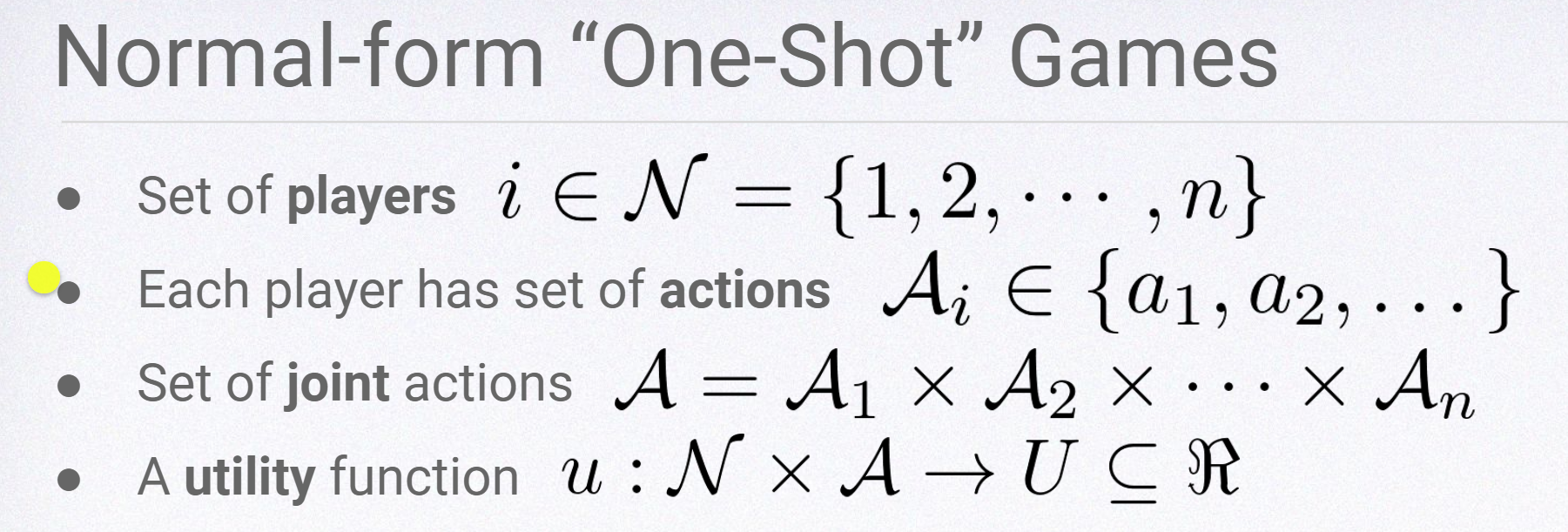1.https://rlss.inria.fr/files/2019/07/RLSS_Multiagent.pdf
2.Multi-agent Reinforcement Learning in
Sequential Social Dilemmas
多智能体的强化学习用于序列化的社会困境
3.https://web.kamihq.com/web/viewer.html?state=%7B%22ids%22%3A%5B%221XfcPDOHoszxKhzHO2oKJ4NgDcVWzP4jc%22%5D%2C%22action%22%3A%22open%22%2C%22userId%22%3A%22112483263868961740692%22%7D&filename=null
A Survey and Critique of Multiagent Deep Reinforcement Learning
主要介绍多智能体在深度强化学习中的应用。
一.介绍了RL,DRL
二.给MDRL的研究方向分类:
1.产生的行为
2.学习沟通
3.学习合作
4.给其他agent建模
三.如何将RL,MAL的技术使用到MDRL
四.MDRL的benchmarks
五.MDRL实践中的挑战
4.Multiagent Reinforcement Learning — DeepMind
一.2007年前后的一些论文及其被引用次数:
0.If multi-agent learning is the answer,
what is the question — 384
1.A hierarchy of prescriptive goals for multiagent learning — 7
2.Agendas for multi-agent learning — 18
3.An economist’s perspective on multi-agent learning — 22
4.Foundations of multi-agent learning_Introduction to the special issue — 10
5.Learning equilibrium as a generalization of learning to optimize — 9
6.Multi-agent learning and the descriptive value of simple models — 28
7.Multiagent learning is not the answer_It is the question — 56
8.No regrets about no-regret — 10
9.Perspectives on multiagent learning — 48
10.The possible and the impossible in multi-agent learning — 29
11.What evolutionary game theory tells us about multiagent learning — 118
二.Normal-form of “One Shot” Games
三.Two-Player Zero-Sum Games
策略迭代
四.backward induction向后归纳法
markov games
五.MARL介绍
1.first era of MARL — MinMax Q-learning
Scalibility was a major problem.
Follow-ups to Minimax Q:
● Friend-or-Foe Q-Learning (Littman ‘01)
● Correlated Q-learning (Greenwald & Hall ‘03)
● Nash Q-learning (Hu & Wellman ‘03)
● Coco-Q (Sodomka et al. ‘13)
Function approximation:
● LSPI for Markov Games (Lagoudakis & Parr ‘02)
Nash Convergence of Gradient Dynamics in General-Sum Games — 296次引用
2.Second Era — Deep Learning meets MARL
Human-level control through deep reinforcement
learning — 7774
分类:
Idependent Q-learning Approaches
Learning to Communicate
Cooperative Multiagent Tasks
Sequential Social Dilemas
Centralized Critic Decentralized Actor Approaches
3.recent works
Independent Deep Q-networks (Mnih et al. ‘15)
Fictitious Self-Play [Heinrich et al. ‘15, Heinrich & Silver 2016]
Neural Fictitious Self-Play [Heinrich & Silver 2016]
Policy-Space Response Oracles (Lanctot et al. ‘17)
Exploitability Descent (Lockhart et al. ‘19)
DeepStack (Moravcik et al. ‘17)
Libratus (Brown & Sandholm ‘18)
Regret Policy Gradients (Srinivasan et al. ‘18)
5.If multi-agent learning is the answer, what is the question?
4.1 Some MAL techniques
4.1.1 Model-based approaches
4.1.2 Model-free approaches
4.1.3 Regret minimization approaches
4.2Some typical results
Fictitious Self-Play [Heinrich et al. ‘15, Heinrich & Silver 2016] A Survey and Critique of Multiagent Deep Reinforcement Learning
A Survey
and Critique of Multiagent Deep Reinforcement Learning

